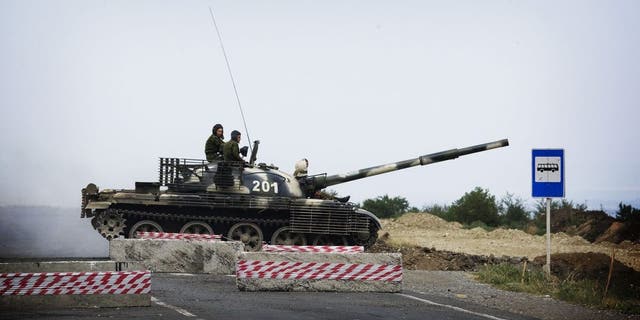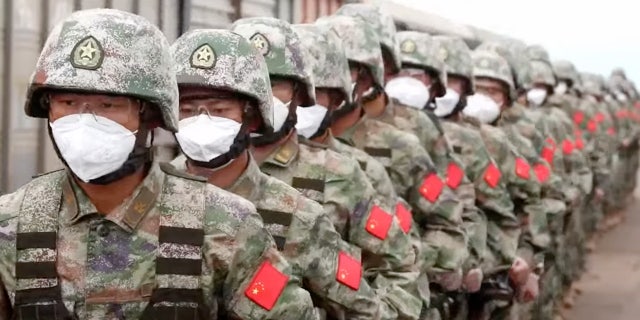NEWYou can now listen to Fox News articles!
Russian President Vladimir Putin signed off on a new foreign policy plan Monday that is based on a “Russian world” concept which relies on radical policies like those used to justify Moscow’s war in Ukraine.
In a 31-page document dubbed a “humanitarian policy,” Moscow has made it official doctrine to “protect, safeguard and advance the traditions and ideals of the Russian World,” according to a translation by Reuters.
Though the idea was presented as a new soft-power strategy for Moscow, the hardliner concept has now been enshrined into Russia’s official foreign policy approach.
Russian President Vladimir Putin delivers an address to the participants of the Bolshaya Peremena All-Russian contest for school students via a video link at the Novo-Ogaryovo state residence, outside Moscow, on June 1, 2022.
(MIKHAIL METZEL/SPUTNIK/AFP via Getty Images)
US SAYS RUSSIA PURCHASING ROCKETS, ARTILLERY SHELLS FROM NORTH KOREA
The document reportedly said Moscow will deepen its ties with ethnic Russians living in abroad, particularly in former Soviet Union nations that separated from the USSR in the 1990s.
Putin has alleged that some 25 million ethnic Russians living in these former Soviet states have been oppressed since the USSR collapsed – which he has deemed the “greatest geopolitical catastrophe of the century” and used as a line of reasoning to justify his invasion of Ukraine more than six months ago.
One aspect of the strategy reportedly called for Russia to deepen its ties with the Luhansk and Donetsk People’s Republic’s in Ukraine, which Moscow has said it plans to illegally annex from its southern neighbor.
However, the latest foreign policy strategy went beyond Moscow’s plans for Ukraine and went on to say that it should deepen its relations with the Abkhazia and Ossetia regions in Georgia, which it deemed “independent” following its illegal invasion there in 2008.

A Russian T62 tank crosses the empty highway linking Tbilisi and western Georgia on Aug. 21, 2008, at a checkpoint manned by the Russian forces.
(MARCO LONGARI/AFP via Getty Images)
RUSSIAN TROOPS IN UKRAINE FACING ‘MORALE AND DISCIPLINE’ ISSUES DUE TO PROBLEMS WITH PAY, UK SAYS
Russia claimed that bolstering its influence aboard will “strengthen on the international stage its image as a democratic country striving for the creating of a multi-polar world.”
The policy also called for Russia to increase cooperation with Slavic nations, China, and India, as well as strengthen relations with nations in the Middle East, Latin America and Africa.

On Monday, Aug. 29, 2022, Chinese soldiers arrive to the Grodekovo railway station to participate in war games drills, in Grodekovo, Primorsky Krai, Russia.
(Russian Defense Ministry Press Service)
Russia has long held the belief that it maintains a “sphere of influence” over Slavic states which range from Poland, Czech Republic, and Slovakia in the west, Belarus, and Ukraine in the east and Bosnia and Herzegovina, Croatia, Serbia, Bulgaria, North Macedonia, Montenegro, and Slovenia in the south.
Leaders from these nations have long contested Russia’s assumed influence over them.